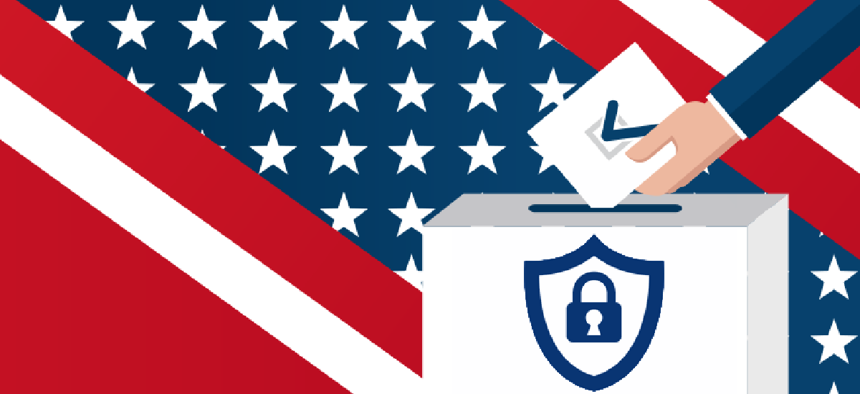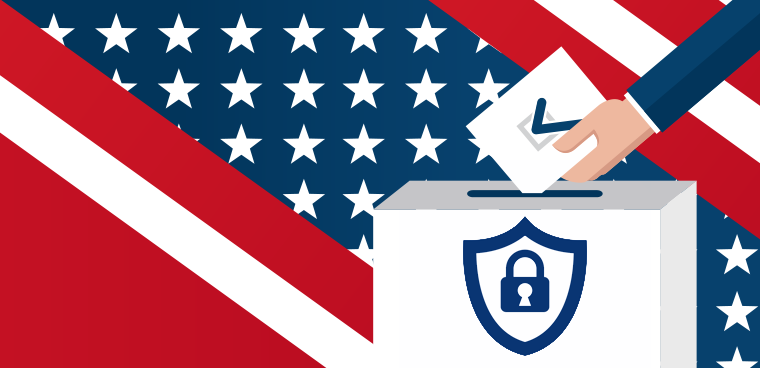DOJ, DHS say foreign influence campaigns didn't alter 2018 elections

An interagency process assessed efforts to hack into voting machines and election systems or alter voter behavior through covert influence campaigns on social platforms and other media.

The federal government has determined that foreign interference campaigns had no material impact on the outcomes of the 2018 midterm elections.
The Departments of Justice and Homeland Security announced Feb. 5 that they have submitted a classified report to President Donald Trump in accordance with an executive order issued last year to root out and investigate foreign interference targeting American elections or campaigns.
"Although the specific conclusions within the joint report must remain classified, the Departments have concluded there is no evidence to date that any identified activities of a foreign government or foreign agent had a material impact on the integrity or security of election infrastructure or political [and] campaign infrastructure used in the 2018 midterm elections for the United States Congress," said DOJ in a statement.
The conclusions represent the second half of an interagency process created late last year to assess whether foreign governments made any efforts to hack into voting machines and election systems or alter voter behavior through covert influence campaigns on social platforms and other media.
The Office of the Director of National Intelligence made an initial assessment to the president shortly before Christmas, when Director Dan Coats said there was "no intelligence reporting that indicates any compromise" of election infrastructure that would have changed vote totals. The report did find that Russia, China and Iran "conducted influence activities and messaging campaigns targeted at the United States to promote their strategic interests," but ODNI did not assess whether those campaigns had any effect on the results 2018 congressional elections.
The discovery of interference efforts would have triggered automatic economic, diplomatic and travel sanctions on any companies or countries found to be responsible.
The joint findings broadly track with what DHS, DOJ and ODNI had publicly reported in the weeks and months leading up to election day. In 2016, officials had enough evidence to attribute a sophisticated cyber campaign, focused on penetrating voting and election systems and spreading disinformation online, to Russia. But multiple DHS and intelligence officials told reporters that they had observed far lower levels of suspicious or malicious activity in the 2018 cycle.
The departments briefly riled policymakers in October 2018 when they issued a joint statement expressing "concern" about ongoing influence campaigns by Russia, China and Iran and their impact on the 2018 and 2020 elections, but none of the worst-case scenarios about changing vote totals or sowing confusion about the integrity of election results appear to have played out.
Steven Chabinsky, former deputy assistant director of the FBI's Cyber Division, told FCW that while he is skeptical the government has put in place an effective strategy to deter nation state adversaries in cyberspace, the findings on 2018 represent a victory on one critical front: bolstering the public's confidence in the election system.
"There was a huge effort that DHS engaged in to try to enhance election security before [2018] and even after all that there were a lot of questions," Chabinsky said on the sidelines of an event hosted by the Foundation for Defense of Democracies. "I think that's helpful for voter confidence. We have such low voting rates in our country anyway that if you feel the election system itself isn't going to have your vote count, that's really a remarkable problem for democracy, so to the extent that they found that and that the information is accurate, that's a big win for everyone."


